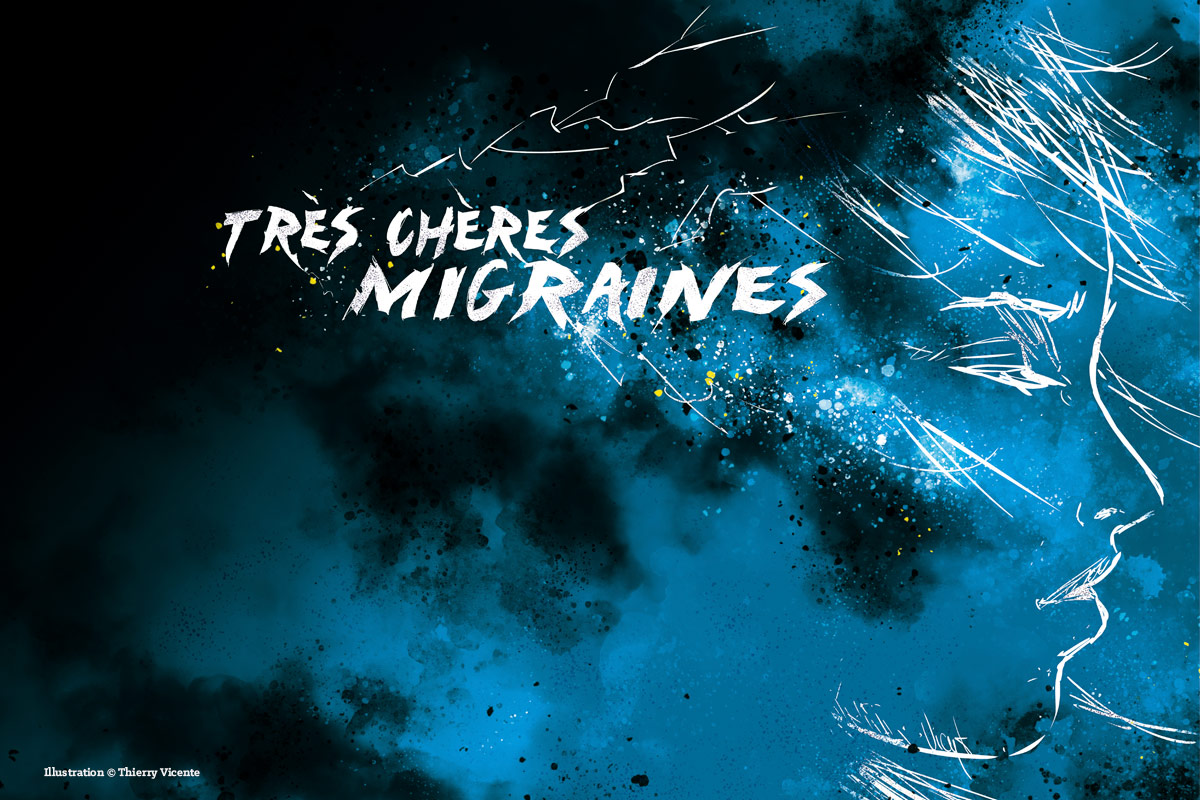[LUM#10] Very dear migraines
Anne Ducros is a neurologist at Montpellier University Hospital. As a migraine specialist, she treats patients who often find current medications ineffective. A new antibody treatment does exist, but its market launch in France has been delayed. The reason? Its high price.

15% of French people suffer from migraines. This neurological disorder is still poorly understood due to its complexity, involving at least forty genes. For 1% of patients, it takes a severe chronic form. Headache attacks occur more than fifteen days a month and cause intense pain, sensitivity to noise and light, nausea, and vomiting, which current medications are not always able to relieve. However, a new treatment could change the lives of thousands of people.
Initial specific treatment
A new therapeutic class specifically designed for migraine. A first. "Until now," explains Anne Ducros, neurologist at Montpellier University Hospital and university professor, " we only had non-specific treatments available. We still treat migraine sufferers with antihypertensive drugs, antiepileptics, or antidepressants, even though they are neither hypertensive, epileptic, nor depressed. " These treatments reduce brain excitability and therefore the risk of migraine, but they expose patients to frequent and serious side effects such as drowsiness, concentration problems, fatigue, shortness of breath, etc.
In recent years, research has identified the role of a mini-protein called CGRP. "This is a small peptide released during attacks by a nerve called the trigeminal nerve, which causes the blood vessels to dilate and triggers a cascade of events leading to pain," explains Anne Ducros. Researchers have since developed antibodies capable of targeting and blocking CGRP, thereby stopping migraines.
Currently, four antibodies targeting either CGRP or its receptor have successfully passed clinical trials in patients who do not respond to conventional treatments. "At least half of the patients have seen a 50% reduction in their attacks, and some have almost no attacks at all. And those who have not seen an improvement with one type of antibody may well respond to another antibody," explains the neurologist.
No side effects
Above all, this treatment has no side effects, except for "a slight pain at the injection site in some people." Unlike current background treatments, which are taken daily in the form of oral tablets, these antibodies are administered to patients by a simple monthly injection.
Simplicity and absence of side effects are two factors that contribute significantly to increasing patient compliance with treatment, as Anne Ducros points out: "Studies show that after one year, 80% of patients with chronic migraines are still taking their medication, whereas with conventional preventive treatments, 80% stop taking it."
These results enabled antibody treatments to obtain approval fromthe European Medicines Agency and the Food and Drug Administration, its US equivalent. When they were submitted to the French authorities, they did approve them for the treatment of severe migraine, but "they considered that there was no improvement in the medical service provided, so they are requesting further studies to demonstrate their superiority over current treatments." This makes it impossible for the drug to be released in 2019... So when? No one knows.
A decision that the specialist, in light of published studies, does not understand. "Some of my patients who do not respond to conventional treatments had high expectations. When I tell them that they will have to wait longer, they feel it is truly unfair."
550 euros per injection
This injustice is all the greater given that the main obstacle to bringing this new drug to market is its price: €550 per injection in the US and Switzerland. This high cost is partly due to the length of the manufacturing process. "It takes five years to set up a production plant for an antibody that can deliver a stable, pure, and effective therapeutic product," explains Anne Ducros.
Today, although French doctors can prescribe these treatments to their patients, the latter must travel to Switzerland to purchase them. "For six injections, they pay €3,200, so for those who can afford it, it works, but for the others... It's a real two-tier healthcare system," notes the neurologist. She concludes with a wish that is not so unrealistic: "There is probably room for innovation to produce antibodies more cheaply... For moderately profitable companies."
Find UM podcasts now available on your favorite platform (Spotify, Deezer, Apple Podcasts, Amazon Music, etc.).